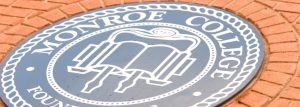Golden Gate University, a nonprofit university, with a mission “to change the lives of adult students through professional practice degrees and certifications,” (the U.S. Internal Revenue Service, 2019, p. 1), has 1,009 enrolled students using GI Bill Benefits (U.S. Department of Veterans Affairs, 2021). One can locate the University by searching key terms such as military-friendly, student veterans, and military colleges, to name a few. Further, the University has received a total of three student complaints in the last 24 months, all allegedly addressing the University’s “recruiting and marketing practices.” (VA, 2021). Finally, the University reported total revenue of $68,236,029.00 in 2019 (IRS, 2019). In addition, it received $10,246,086.37 in federal GI Bill benefits from the VA in FY 2020. (VA, 2021). In simple terms, a statistically significant portion of Golden Gate University’s total revenue is garnered from GI Benefits.

First, no university in the United States can, in good faith, argue that the U.S. Government Basic Allowance for Housing (BAH) rate is somehow tied to its academic performance and ability to produce graduates capable of entering the workforce. Some may loosely attempt to label rising costs of housing as a success metric for those student veterans and student service members who happen to reside – or wish to live – in the zip code claiming the advertised BAH rate, but, ultimately, the weak attempt reeks of desperation and possibly unethical trade conduct, regulated by the Federal Trade Commission.
Golden Gate University’s BAH Rate, or more accurately, Zip Code San Francisco’s BAH Rate is $4,971.00.
Review the following BAH rates for two major U.S. cities and a border town in southern Texas to put that amount into perspective.
• Boston, Massachusetts: $3,075.00
• Miami, Florida: $2,352.00
• Edinburg, Texas: $1,194.00
Why the distinction between a university and a city BAH rate? BAH is paid directly to the veteran.
Simple. Golden Gate University, a private entity, does not have a BAH rate. Instead, the city of San Francisco, a government entity, has a BAH rate. It is why whenever one stays at a hotel near a military base, the single night rate will almost always match perfectly with the Government reimbursement rate. This minor variation in wording matters because (1) the private sector should not be acting in concert with the Government sector on reimbursable rates as it constitutes a slippery slope towards corruption, and (2) this marketing tool directly affects the academic decisions of student veterans and student service members. As the late Supreme Court Justice Scalia often exclaimed, “words have meaning.”
Universities are not advertising, “Come to our school for our $5,000.00 BAH!” Instead, they are using Search Engine Optimization (SEO) to claim more subtly they are “BAH Eligible.” “Stomp. Stomp,” as my former Non-Commissioned Officers would say.
This blog was written by a member of the Veterans Education Project. These are the views and opinions of the author and are not necessarily that of the Veterans’ Education Project.
 Matthew Feehan is a graduate student at the University of Texas Rio Grande Valley and a graduate of Western New England University School of Law. He is not an attorney and his views are his own. He focuses his research and writing on Veterans higher education issues.
Matthew Feehan is a graduate student at the University of Texas Rio Grande Valley and a graduate of Western New England University School of Law. He is not an attorney and his views are his own. He focuses his research and writing on Veterans higher education issues.
To get in touch with Matthew, contact us!




